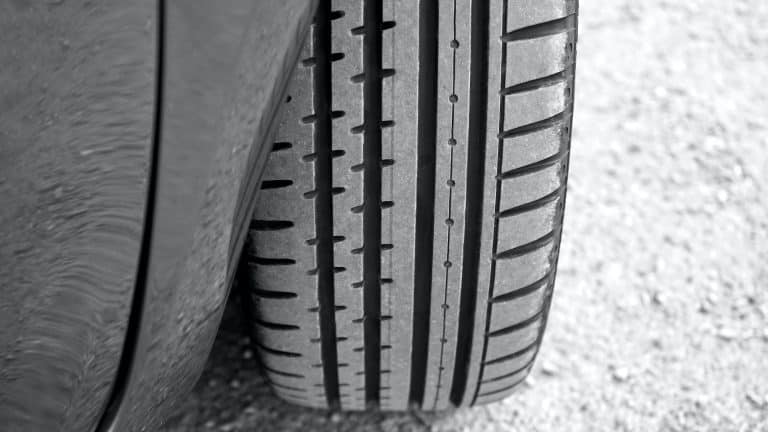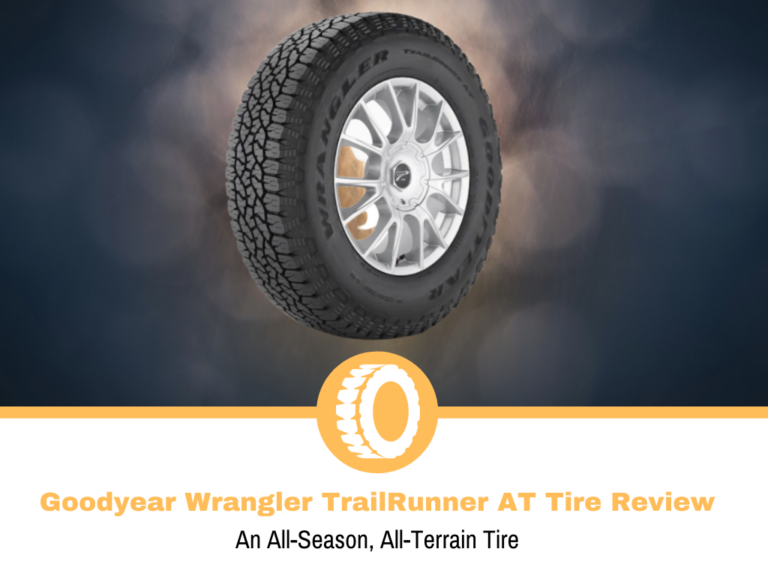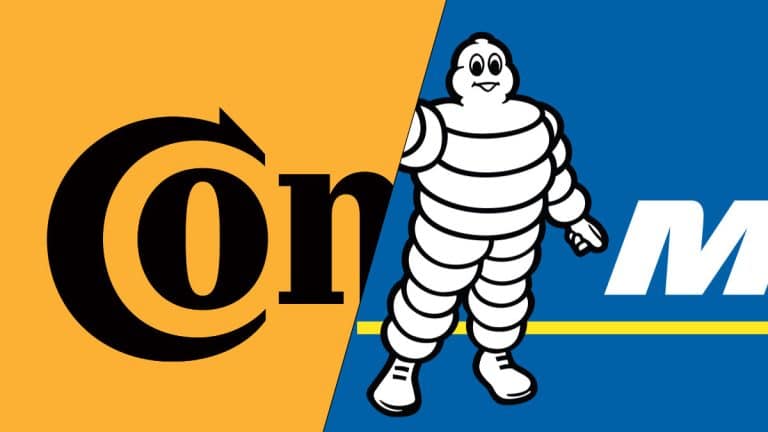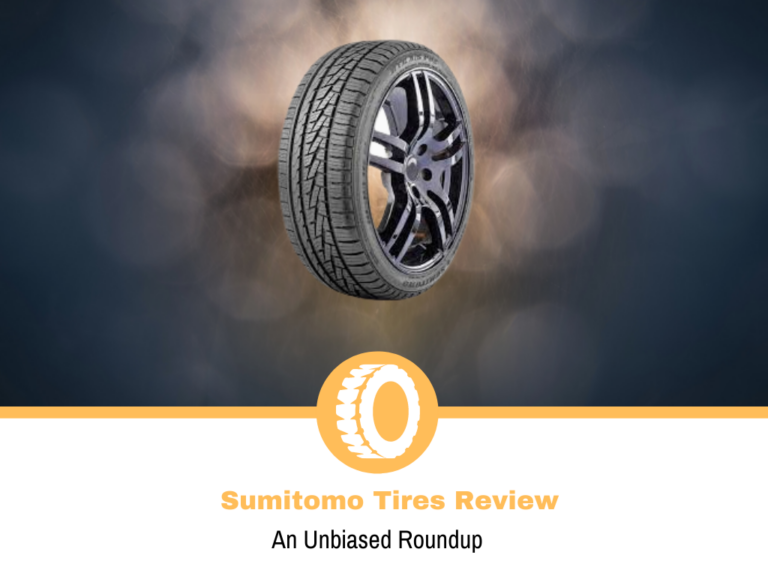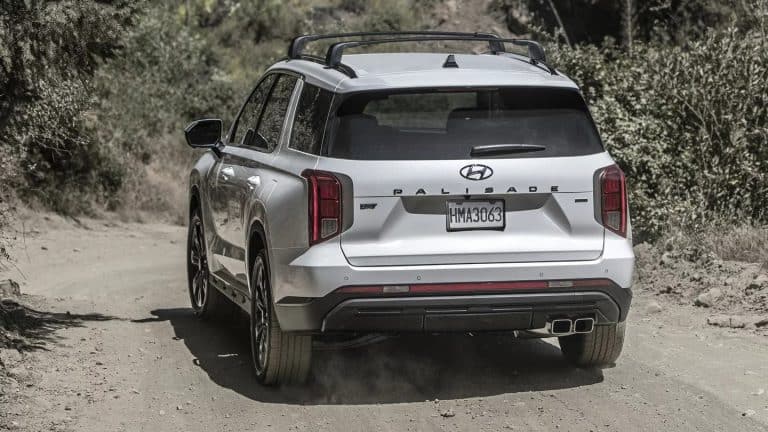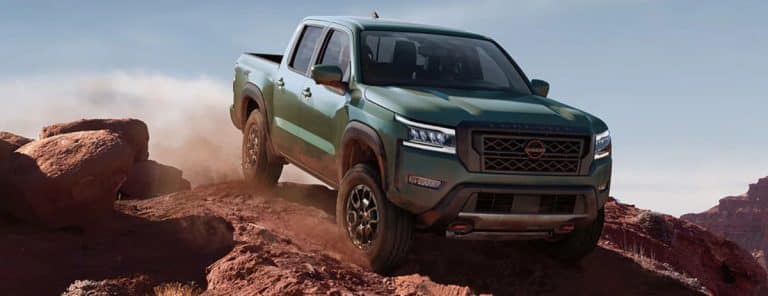Lionhart Tires Review: Only If You Have To
In the world of tires, there were times when the number of options was limited. The lack of cars on the road meant there wasn’t a massive need for tires, so there were a handful of options. As the wonders of the modern world began to take over, that changed.
Today, we have tons of car manufacturers making thousands of models yearly, so tire manufacturers must follow the trend. This also opens the door for new brands to enter the market, hoping to be relevant and successful enough to dethrone some of the already excellent models.
We already know the older companies, but we keep seeing new additions to the market, usually in the affordable segment. One of those is a company called Lionhart, with some relatively limited information about the background. The company has been around for about a decade, and considering that it’s headquartered in California, some people may be tempted to choose it over some of the Chinese options.
This raises an essential question: does Lionhart make good tires, and are they worth it?
Lionhart Tires Review
Here are the best Lionhart tires currently on the market:
#1. LH-501
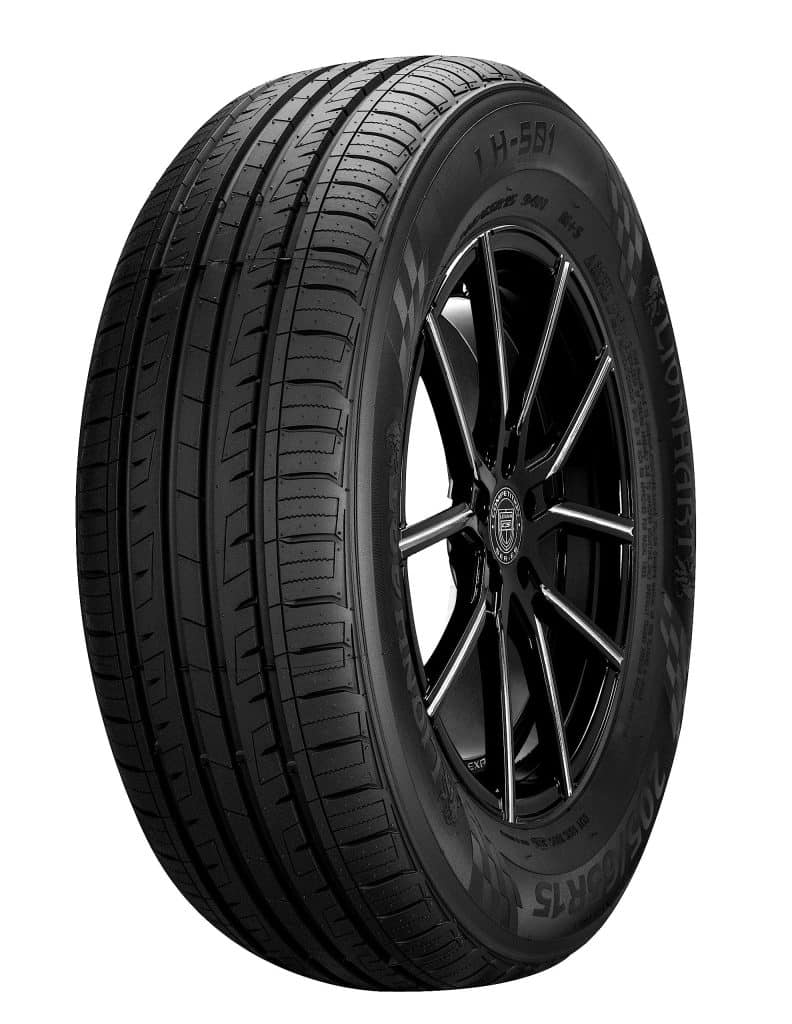
Don't know the correct size tire to purchase? Start here!
First on the list is the LH-501. It’s an all-season touring tire mainly for passenger cars and maybe some smaller CUVs and SUVs.
As an all-season model, the LH-501 features a symmetric tread pattern made using Lionhart’s all-season compound. This should give the tire its touring properties as a well-refined option, and the compound should help it deliver performance in multiple conditions. The 4 wide circumferential grooves are designed to help the tire channel water and deliver excellent aquaplaning resistance.
In dry conditions, the LH-501 offers solid performance. The grip and traction levels are enough for driving around town or on the highway. There isn’t much room to push it, so it shouldn’t be your first choice for a tire you can have fun with on a twisty road. Wet conditions are where the tire disappoints. The traction on damp roads is way below average, even for this category, and the braking distances are longer. In addition to that, the aquaplaning resistance isn’t the best. It’s fine around town, but not so much on the highway.
Things don’t improve much in winter. The LH-501 is an all-season tire, so I wasn’t expecting wonders. For the most part, the tire is barely acceptable over shallow unpacked snow, and even then, you’ll need to be careful of your inputs. Packed snow is an issue, at which point the tire becomes almost useless.
The refinement, on the other hand, is pretty good. With the LH-501, you’re getting a decently comfortable experience as the tire absorbs some of the imperfections and softens the bumps. The noise levels are also decent, considering it’s a cheap tire. It doesn’t produce a lot of noise around town, but you will hear a bit from it on the highway, especially over rougher roads.
As a touring tire, you shouldn’t expect wonders in terms of handling. It’s acceptably responsive, just as you’d expect from a cheap touring tire. There is noticeable flex in the sidewall, and you won’t have a lot of feedback through the steering wheel.
On the flip side, the LH-501 comes with a 40,000-mile treadwear warranty. It’s not on the same level as a premium model, but it doesn’t cost as much.
Pros
- Solid dry performance
- Comfort levels are pretty good
- Not very noisy, especially when driving around town
Cons
- Wet performance is below average
- Almost unusable in winter conditions
#2. LH-503
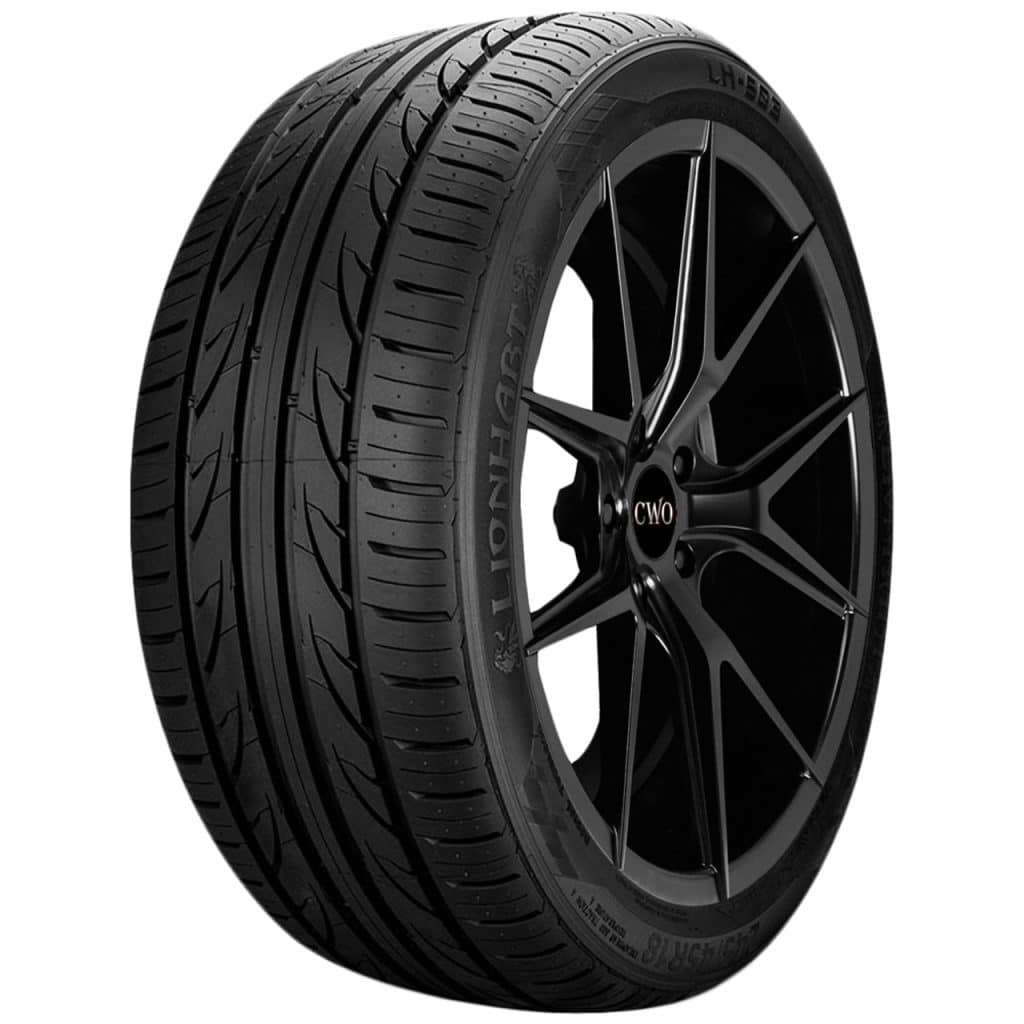
Don't know the correct size tire to purchase? Start here!
Despite the similar name, the LH-503 is a different type of tire from the previous one. This one is an all-season high-performance model for passenger cars.
The LH-503 is an all-season model, and to deliver performance in multiple weather conditions, Lionhart utilized its all-season rubber compound. It’s molded into a directional tread pattern, meaning we should see stability and solid handling. As part of the pattern, the grooves are designed to help the tire channel water more efficiently, which should offer excellent aquaplaning resistance.
On dry roads, the LH-503 is a solid performer, which should be fine for most people. The tire does a decent job at delivering decent grip and traction levels, so it will be fine for daily driving scenarios. Unlike the previous one, the wet performance is a bit better. I wouldn’t classify it as excellent, but it’s a bit above average, so you won’t notice the tire slipping too much. As for aquaplaning resistance, the tread pattern does a solid enough job, and the stability is quite decent.
As an all-season tire, you’d expect the LH-503 to be usable in winter conditions, and that’s partially right. There is some traction in light snow conditions, and that’s as much as you’ll get. The tire will struggle a bit more on packed snow, and in the harsher conditions, it becomes completely useless.
Refinement is something that the LH-503 does decently well. The noise levels in this affordable price range are on the lower end of the spectrum, so most people will be happy with this. As for comfort, I would categorize it as average. It absorbs some of the bumps but is not as smooth as the premium rivals.
The handling isn’t the strongest point of the LH-503. It has some responsiveness, but it’s behind even some of the mid-range rivals. Considering that most people would drive it normally, the flex in the sidewall isn’t something they’ll notice too much.
Like the previous model, the LH-503 comes with a 40,000-mile treadwear warranty, which is pretty good considering the price point.
Pros
- Dry performance is decent
- Average wet performance
- Solid refinement levels
Cons
- The handling isn’t the most responsive
- Winter performance is limited
#3. LH-Five
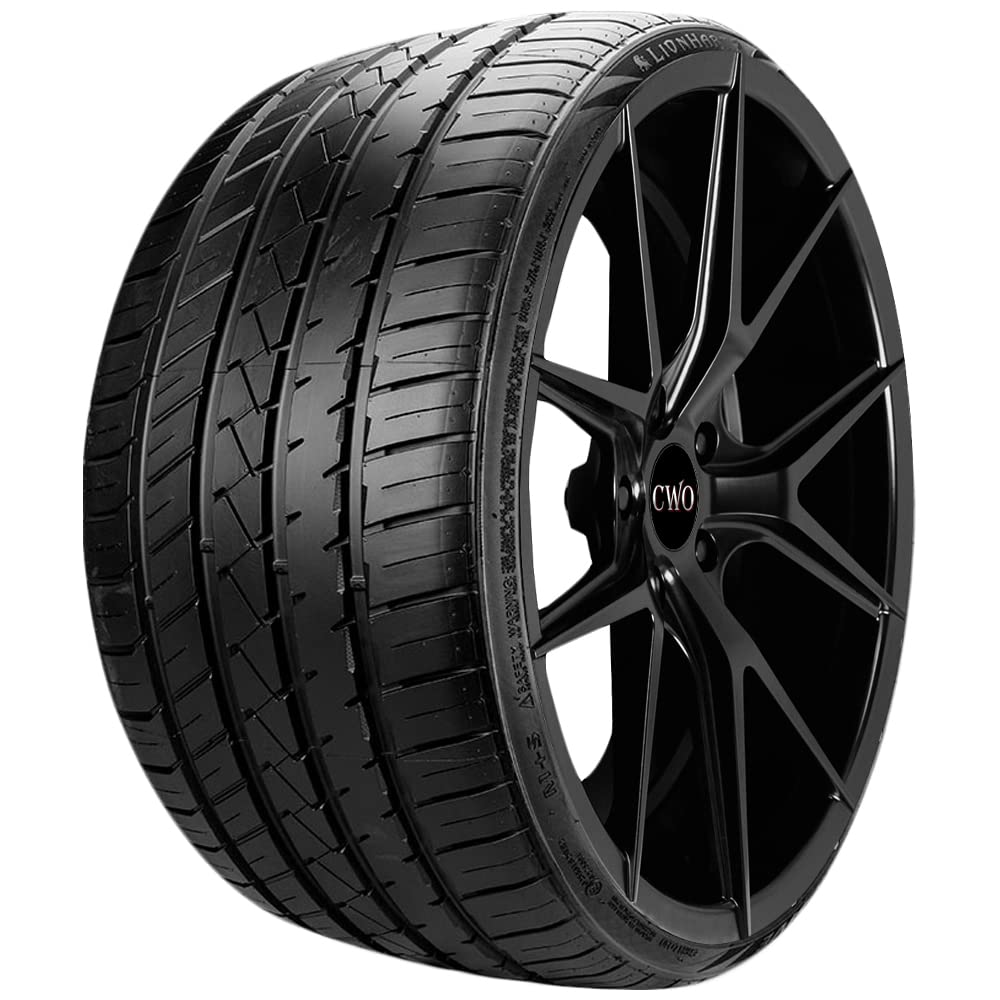
Don't know the correct size tire to purchase? Start here!
The previous two tires were more touring-like, and for this next one, I’m going for the UHP segment. The LH-Five is an all-season ultra-high-performance tire with a pretty wide range of size options.
Like the other two, Lionhart used its all-season rubber compound to provide performance in multiple conditions. The tread design features 4 circumferential grooves, which work in tandem with the lateral ones, meaning you should have excellent aquaplaning resistance. In terms of handling, the shoulder blocks of the LH-Five are wider, which should result in better handling characteristics.
Driving on dry roads with the LH-Five is quite a positive experience. You can tell that the tire is set up for performance, and there’s a bit more grip and traction than the previous two. It’s still behind the premium models, but in this price range, I have to praise it. Lionhart tires don’t do too well in wet conditions, and this one is no exception. I wouldn’t classify it as unsafe, but the grip and traction levels aren’t excellent. On the other hand, the aquaplaning resistance isn’t too bad, and the tire remains stable.
The LH-Five is technically an all-season tire, but the performance isn’t something you’ll find too usable in winter conditions. It’s fine in cold weather, but it’s far from the best in snow. The most you’ll get out of it is some traction on shallow and unpacked snow. For packed or deep snow, the tire will struggle a lot.
Considering that we’re talking about a UHP tire, the refinement is solid. The LH-Five doesn’t produce a lot of noise, and the most you’ll hear from it is on the highway. Comfort levels are acceptable as well. This tire has some softness, but it’s aimed at performance driving, so people used to touring tires will find it harsh.
The LH-Five is a UHP tire, and the handling is UHP-like. On a twisty road, the tire will offer quite decent responsiveness, so it’s better than the other two in this regard. The feedback could use a bit of work, but it’s not terrible.
As far as the warranty is concerned, the LH-Five comes with a 30,000-mile treadwear warranty, which is almost on the same level as the premium models.
Pros
- Handles well
- Plenty of dry performance
- Solid refinement levels
Cons
- Barely usable on snow
- Traction on wet roads is average
#4. LH-Ten
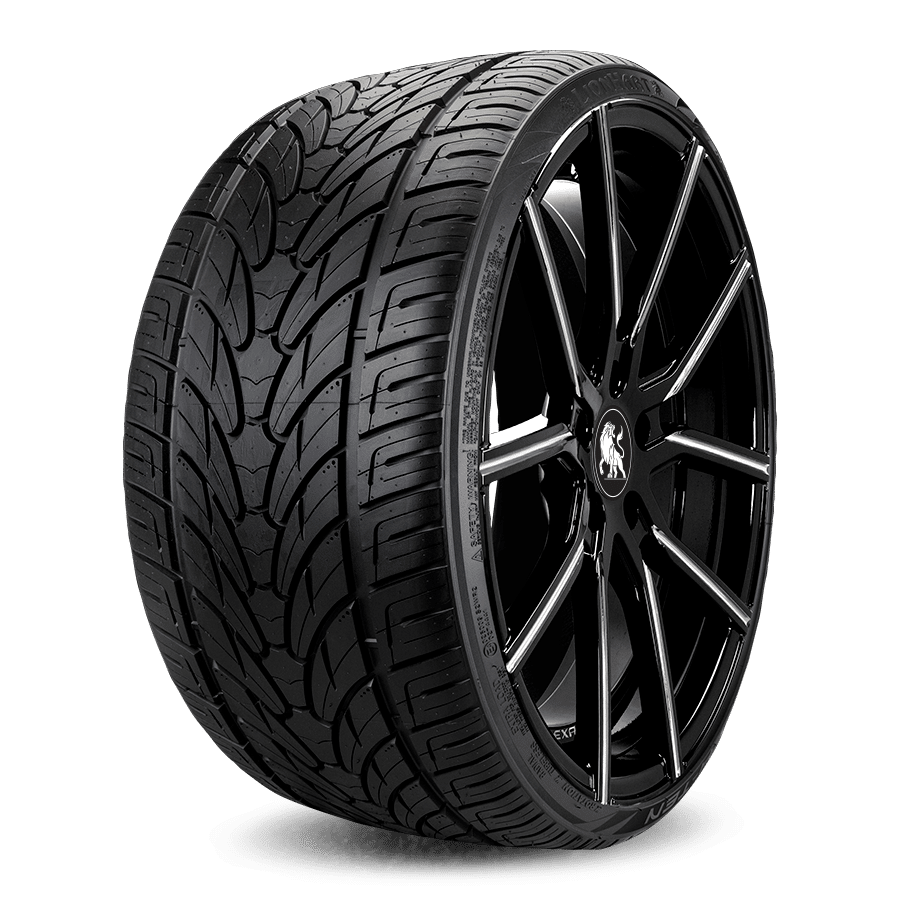
Don't know the correct size tire to purchase? Start here!
You’d think the LH-Ten is Lionhart’s upgrade over the previous model, but you’d be wrong. This is an all-season UHP model, similar to the previous one, but it’s designed for CUVs, SUVs, and light trucks.
To deliver performance in winter conditions, the LH-Ten is made with an all-season rubber compound, so we should see some performance on snow. The V-shaped tread pattern should offer high-speed stability and excellent aquaplaning resistance. Since it’s a UHP tire, the shoulder blocks are wider, meaning the handling should match the UHP tag.
Like most of the affordable tires on the market, the LH-Ten doesn’t’ struggle with performance in dry conditions. It offers plenty of grip and traction, so you can push it a bit and have some fun. Unlike the previous model, the wet performance is a bit better. I still wouldn’t compare it with the premium tires, but there is a noticeable difference. It’s the same with aquaplaning resistance. The V-shaped pattern does a good job of evacuating water, keeping the tire stable even at higher speeds.
Winter performance is decent-ish. You have solid traction on unpacked snow, and the tire doesn’t do a poor job on packed one. Like with any all-season tire, going for harsher conditions means that the tire will struggle a lot more.
When it comes to refinement, you shouldn’t have high expectations, mainly because the LH-Ten is a UHP tire. The comfort levels aren’t too bad, and the tire deals with bumps acceptably well. There is some harshness to it, but it’s not terrible. The noise levels, on the other hand, could use a bit of work. It’s not obnoxiously loud, but it’s louder than some of the other Lionhart tires.
There is some softness to the tire that gives it an acceptably smooth ride. Unfortunately, that affects the handling, and the LH-Ten is a bit disappointing. Don’t get me wrong, it’s responsive, but the sidewall has a bit more flex than I’d want. Also, the feedback you’ll get through the steering wheel is average.
Like the previous model, the LH-Ten comes with a 30,000-mile tread wear warranty, which is good for a cheap UHP tire.
Pros
- Plenty of grip and traction on dry roads
- Wet performance is solid
- Responsive
Cons
- Struggles in deep snow
- The flex in the sidewall is a bit more noticeable
#5. LH-Eleven
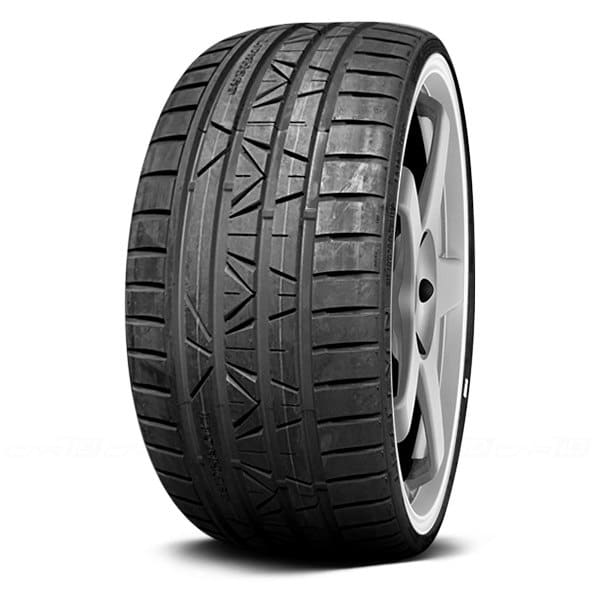
Don't know the correct size tire to purchase? Start here!
I know that Lionhart’s naming scheme is confusing, but the LH-Eleven isn’t an upgrade over the LH-Ten. This is a summer UHP tire made for passenger cars, but unfortunately, it comes in limited sizes, and they’re all for larger wheels.
Even though we’re talking about a summer tire, Lionhart used a silica-enriched rubber compound designed to keep it performing in wet conditions. The tread pattern features 4 wide circumferential and plenty of lateral sipes aimed at evacuating water more effectively. Similar to the previous tires, the shoulder blocks are wider, which should help with cornering.
The LH-Eleven is a tire that doesn’t struggle with performance in dry conditions. It offers high levels of grip and traction, considering its class, and most people will be perfectly fine with that kind of performance. On damp roads, the traction is solid, and you can push the tire before it starts to let go, putting it somewhere in the middle of this class. The aquaplaning resistance, like the tires so far, is pretty good.
When it comes to refinement, the LH-Eleven doesn’t do a poor job at it. The noise levels are surprisingly good, and the tire doesn’t produce a lot of noise, considering it’s a UHP tire. On the other hand, the comfort levels could use a bit of work. The tire absorbs some of the bumps and softens road imperfections, but there is some harshness to it, especially on rougher roads.
The handling is a bit of a saving grace for the LH-Eleven. You’re getting a very responsive tire without much flex in the sidewall, which is to be expected, considering that all models are low-profile. One thing I’d like to see improved is the feedback. It’s not muted, but there are times when you may feel like it’s not communicating enough.
Pros
- Very good handling characteristics
- Plenty of performance
- Noise levels aren’t too high
Cons
- Needs a bit more feedback
- Comfort levels are average
#6. Lionclaw HT
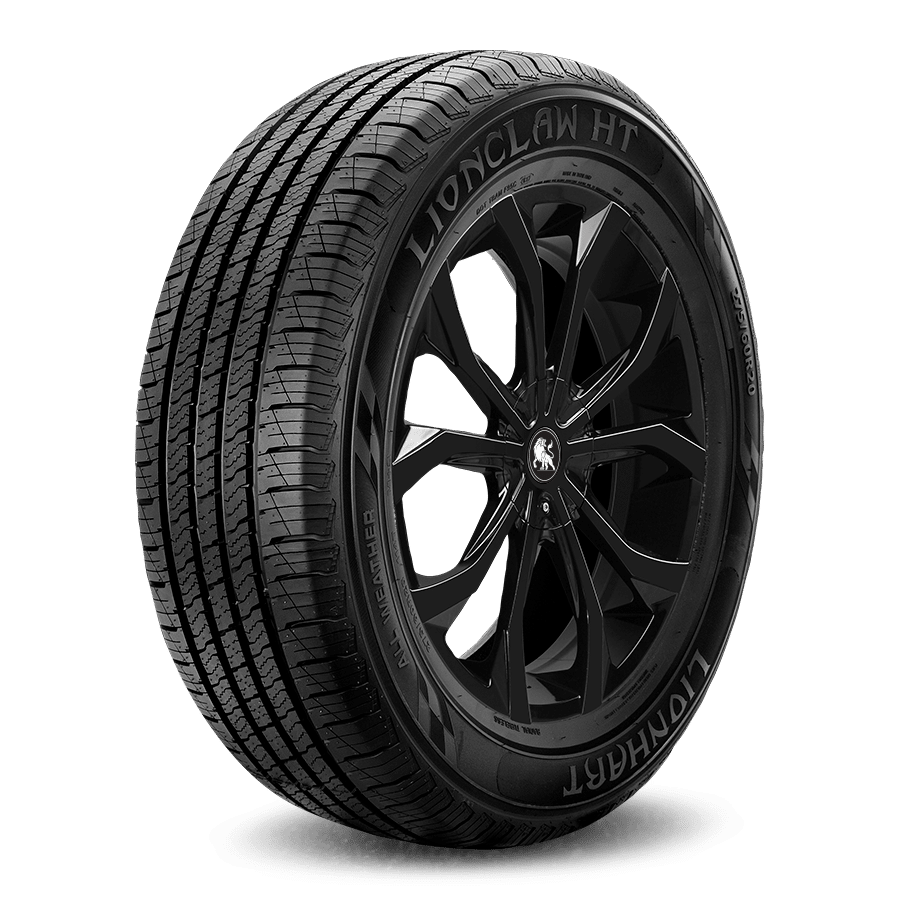
Don't know the correct size tire to purchase? Start here!
Moving away from the performance-oriented models, we have a touring-like one. To be precise, it’s a highway tire. The Lionclaw HT is an all-season model designed for SUVs and trucks, and it’s aimed at long life, refined experience, and safe performance.
The Lionclaw HT is made using Lionhart’s all-season rubber compound, meaning we should see some usable performance in winter. The tread pattern is designed and explicitly tweaked to provide even wear and works in combination with the compound to provide a long lifespan. As part of the design, the sipes should help offer more traction on damp roads or packed snow.
In dry conditions, the Lionclaw HT offers decent performance for a highway tire, which is why it’s such an attractive choice. The performance levels are decent, and the tire will offer enough grip and traction for regular driving. Keep in mind that you don’t have a lot of headroom to push it. It’s a similar story with wet performance. The traction on damp surfaces is acceptable as long as you’re aware of the limitations.
The Lionclaw HT is an all-season tire, so the winter performance is acceptable. There is a usable amount of traction on unpacked snow, and even though the tire struggles a bit, you can get it to work on packed as well. Considering it’s not a winter tire, don’t expect any performance in harsher conditions.
Tires like the Lionclaw HT are all about refinement, and this one delivers on that front partially. The comfort levels are pretty good, and thanks to the tire’s ability to provide a smooth ride, it’s comparable even to some mid-range options. On the other hand, the noise levels aren’t as impressive. The tire is a bit noisier, especially at higher speeds. For driving around town, the noise isn’t too noticeable.
Highway tires aren’t made for dynamic driving, so don’t expect that from the Lionclaw HT. The tire’s responsiveness is fine for most average drivers, so it won’t feel slow to respond like a winter tire. With that, you won’t get a lot of feedback, which is to be expected from a tire from this category.
As a highway tire, I was expecting a bit more out of the Lionclaw HT in terms of the warranty. The tire comes with a 40,000-mile treadwear warranty, which is on the same level as the performance options from Lionhart.
Pros
- Comfortable
- Dry and wet performance is solid
- Usable in light snow
Cons
- Treadwear warranty is average
- Noise levels are a bit higher than some of its rivals
#7. Lionclaw ATX2
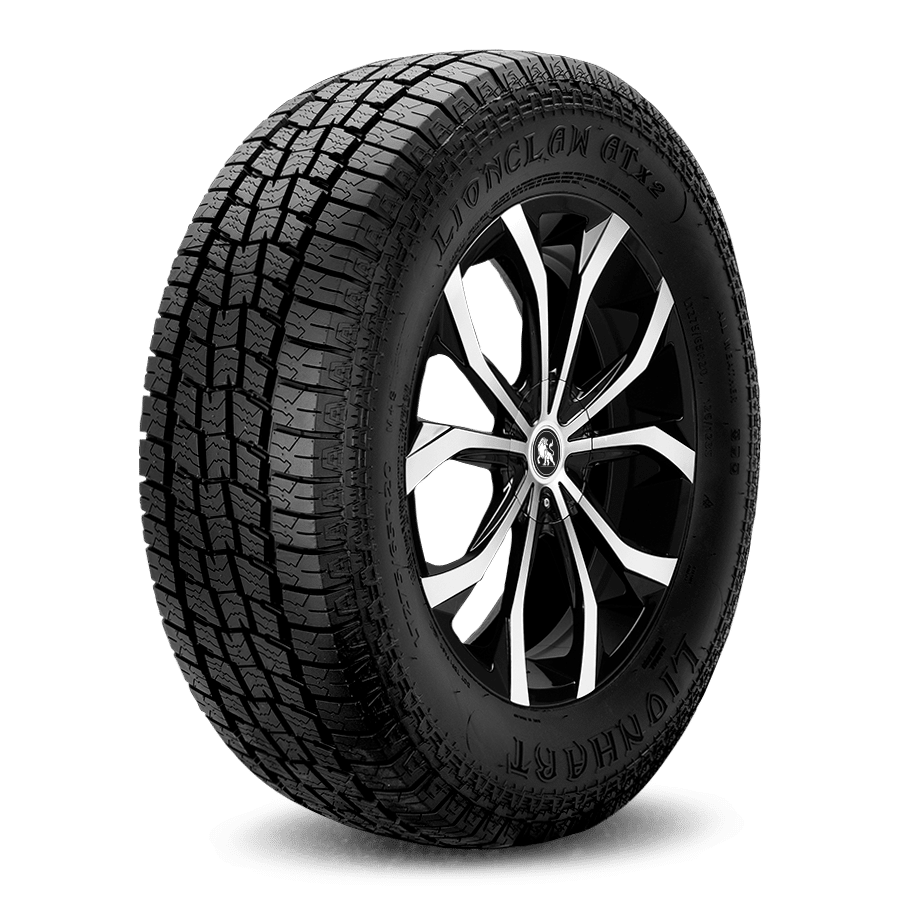
Don't know the correct size tire to purchase? Start here!
The last entry on this list is another model aimed at SUVs and light trucks. For this one, Lionhart also covers those who are into some off-roading. Yes, the Lionclaw ATX2 is an all-terrain model, so we should see solid performance on an off-road.
Like most all-terrain tires, there are two sides to this one. The Lionclaw ATX2 features an aggressive tread pattern molded from an all-season rubber compound, so it should cover two aspects – winter and off-road performance. As part of the design, the tire has full-depth sipes, meaning the performance should stay consistent as the tire wears down.
Driving on dry roads with the Lionclaw ATX2 isn’t a bad experience. The tire offers decent levels of grip and traction, meaning you are within the safe zone. It’s the same with the braking distances. Far from the shortest, but good enough. It’s more or less a similar story in wet conditions. Naturally, there’s more slip on damp roads when compared with dry, but the tire seems to hold decently well. As for the aquaplaning resistance, it’s fine, but don’t expect the tire to be stable at very high speeds.
Some features in the tread pattern enable this tire to perform acceptably well in snowy conditions. There’s a decent amount of biting force, and the tire offers solid traction on unpacked snow. The sipes help out a lot, and even though there is a bit of slip, it won’t be useless on packed snow. You may even get a bit of performance in deep patches.
As an all-terrain tire, you’d expect some off-road performance, and the Lionclaw ATX2 will also offer a bit of that. The tire does a solid job of delivering traction on dirt or gravel roads. It’s a bit behind the mid-range options, which is a big plus. Driving in mud is where the tire disappoints a bit. You can use it, but you won’t have a lot of traction in deeper patches, making it acceptable for shallower ones. Unlike some all-terrain rivals that can handle a bit of rock-crawling, this one doesn’t. You could maybe go over some smaller rocks, but that’s as much as you should expect.
The refinement is an area where the Lionclaw ATX2 does decently well. The noise levels are decent for an all-terrain tire, and you won’t hear it too much when driving around town. On the highway, the noise will be more noticeable, especially over rougher surfaces. In terms of comfort, the tire is average. It absorbs some bumps and smooths the road imperfections partially, but it’s still behind the premium rivals.
You’re not getting an all-terrain tire for the marvelous handling, so don’t expect to see that here. The Lionclaw ATX2 is acceptably responsive, which will be fine for most people. With that said, there isn’t a lot of feedback through the steering wheel, so you may have some difficulties figuring out what the front tires are doing.
Pros
- Solid performance on paved roads
- Usable on snow
- Does a good job of delivering traction on dirt roads
Cons
- Mud performance is average
- The comfort levels aren’t as good as I was expecting
Lionhart Tires Buying Guide
What is there to like about Lionhart tires? What is it that distinguishes these tires from the chasing pack? Are there areas where Lionhart tires could or should have done better? Any shortcomings that could potentially be deal-breakers? This section has all the answers.
Why Should You Buy Lionhart Tires?
Here’s why Lionhart tires should be on your short list of tire brands to buy next:
1. Solid dry performance
The first thing you should keep in mind whenever you’re buying affordable tires is that the performance won’t be as good as the premium ones. With Lionhart tires, the performance in dry conditions is solid for the price, and as long as you’re not aggressive, you should be fine.
2. Affordable
Speaking of price, Lionhart is one of the many brands that offer affordable tires. Getting a set of tires for a price lower than the mid-range rivals is an excellent option for people on a tight budget. As I said previously, this also means that you will be sacrificing some of the performance.
3. Decent refinement
Even though I had some critiques about certain aspects of the refinement with some models, I cannot fault Lionhart for making poorly refined tires. Considering that we’re talking about cheap options, the tires are decent, and most people will be fine making that sacrifice for the lower price point
4. Available in small sizes
This doesn’t apply to all tires, but it’s worth mentioning. In an era where smaller wheels are no longer available with new cars, finding new tires in smaller sizes is a saving grace for people with older cars. Some of Lionhart’s models come in sizes as small as 15 inches, making it easier for you to find something that works on your car.
Why Should You NOT Buy Lionhart Tires?
Here’s why Lionhart tires may not be a good choice for you:
1. Average wet performance
Cheap tires are usually good in dry conditions and not so good in wet, which is the case with Lionhart tires. I’m not saying that they are the worst performers and that they’re unsafe. The tires are acceptable, but you’ll need to be mindful of the limitations and don’t push them hard, especially on damp surfaces.
2. Winter performance is limited
We saw barely usable winter performance with some of the models, which isn’t a good thing considering that they are all-season models. Others offer a bit more, but even that’s still behind what the premium and mid-range have to offer.
3. Limited type of tires
Lionhart has enough models, as far as the number is concerned. In reality, you are a bit limited by the type of tires this company offers. For the most part, you’re looking at performance-oriented options, and there’s one highway and an all-terrain model. This means you don’t get dedicated winter, touring, or mud-terrain tires.
4. Questionably durability
When you get a new set of tires, you want them to last as long as possible. With Lionhart, some people had durability issues, some in terms of treadwear, and others in terms of internal construction. This is the biggest risk with affordable tires. Initially, they won’t cost as much, but you won’t know how long they’ll last.
Frequently Asked Questions
Here are some of the common queries people have about Lionhart tires:
Who makes Lionhart tires?
Like most of the tire brands we know today, Lionhart is one of those companies that falls under the umbrella of a bigger one. In this case, we’re talking about Turbo Wholesale, which is technically the company that distributes them in the US. As for the production process, Lionhart tires are made by Sentury.
Where are Lionhart tires made?
Since Sentury makes these tires, it’s natural for the models to come out of the manufacturing plants owned by that company. There are two options here – China and Thailand. It depends on the model in question.
How long do Lionhart tires last?
Longevity is something we cannot estimate because many factors can play a role. Regarding treadwear, Lionhart tires should be fine for around 30,000 to 40,000 miles, but you may see them wear down faster. Also, I already mentioned questionable durability, so a defective product isn’t completely eliminated, which can reduce lifespan.
Is Lionhart a good brand?
Whenever I talk about these cheap brands, I’m hesitant to say bad. Lionhart is an acceptable brand for the price, which is probably the main selling point. The performance is acceptable, and you won’t know how long they’ll last, which is what you should expect when paying less.
Are Lionhart tires noisy?
Surprisingly no. Considering that we’re talking about a cheap tire brand, the tires are decently quiet. Don’t get me wrong, I wouldn’t start comparing Lionhart tires with the likes of Michelin or Continental, but they aren’t the noisiest option on the market.
Are Lionhart tires good for snow?
Not really, and there are two reasons for that. The first one is that Lionhart only has all-season models, which have limited performance in snowy conditions. The second reason is that these tires aren’t performing as well as some other all-season options on snow. When you combine both of these, you get a tire brand that you shouldn’t rely on too much in winter.
Conclusion
The main thing you should consider when looking at tires from an affordable brand is what you’ll get. Initially, the price is lower, but that also means you’ll get less performance, and the tires won’t last as long as the premium ones. This about sums up what Lionhart has to offer.
Would I recommend this brand? Not really, but you may consider it if you’re on a really tight budget or have an old beater car. The performance isn’t the best, so keep that in mind. Unless you drive aggressively, the tires should be fine.
In my opinion, if you have a chance to go for a higher-tier brand, do it. This becomes an especially good option if you find a set of mid-range tires at a discount. If not, then Lionhart tires would get the job done as long as you’re aware of the limitations.

